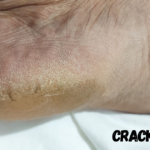Have you noticed that your menstrual cycle has been getting shorter lately? It can feel puzzling, even concerning. But don’t worry – your body’s just trying to tell you something. Let’s explore the reasons why your menstrual cycle might be changing and what you can do about it. Why Is My Menstrual Cycle Getting Shorter
Table of Contents
What is a Normal Menstrual Cycle?
Before diving into the causes, it’s important to understand what a typical menstrual cycle looks like. Generally, a menstrual cycle ranges from 21 to 35 days, with bleeding lasting 2 to 7 days. But here’s the thing: what’s “normal” is unique to every person. Some fluctuation is perfectly okay.
Why is My Menstrual Cycle Getting Shorter?
There are several reasons your cycle might be shortening. Here are the most common causes:
1. Hormonal Imbalances
Your hormones, particularly estrogen and progesterone, control your menstrual cycle. Stress, changes in lifestyle, or natural hormonal shifts can cause imbalances that shorten your cycle’s follicular phase (the first half), leading to an overall shorter cycle.
2. Perimenopause
If you’re in your late 30s or 40s, you might be experiencing perimenopause, the phase before menopause. During this time, hormone levels fluctuate, which can lead to shorter or irregular cycles.
3. Stress and Anxiety
Ever feel like stress throws your whole body off? That’s because it does. Stress affects the hypothalamus – the part of your brain that regulates hormones. Prolonged stress can disrupt ovulation, shorten your cycle, or even cause missed periods.
4. Birth Control or Medications
Starting or switching birth control can change the length of your cycle. Some hormonal contraceptives shorten bleeding days or stop periods altogether. Certain medications might also affect your cycle.
5. Thyroid Problems
Your thyroid regulates crucial hormones, so issues like hypothyroidism or hyperthyroidism can alter your cycle length. Other symptoms like fatigue, weight changes, or hair thinning might also appear.
6. Polycystic Ovary Syndrome (PCOS)
PCOS is a common hormonal disorder that can cause irregular cycles, sometimes shorter than usual. It’s often accompanied by symptoms like acne, excess hair growth, or difficulty managing weight.
7. Weight Changes
Sudden weight loss or gain can impact your menstrual cycle. Being underweight, especially, disrupts the balance of hormones needed for ovulation. Athletes or those with low body fat often experience shorter or missed periods.
8. Uterine or Ovarian Conditions
Health issues like fibroids, endometriosis, or ovarian cysts may shorten your cycle. These conditions often come with other symptoms like heavy bleeding or pelvic pain.
When Should I Worry About a Shorter Cycle?
A shorter cycle isn’t always a reason to worry. But if it persists or comes with unusual symptoms, it’s time to check in with your doctor. Specifically, see a healthcare provider if you experience:
- Cycles consistently shorter than 21 days
- Heavy or prolonged bleeding
- Severe period pain
- Unexplained changes without an obvious cause
What Can I Do About My Shorter Cycle?
The good news? There are practical steps you can take to manage or reverse changes in your menstrual cycle:
1. Reduce Stress
Stress can wreak havoc on your hormones. Try relaxation techniques like meditation, yoga, or even taking regular walks. Deep breathing exercises can also help your body rebalance.
2. Track Your Cycle
Keeping a record of your menstrual cycle using an app or calendar can help you spot patterns and provide valuable insights for your doctor.
3. Eat a Hormone-Friendly Diet
Your diet plays a huge role in hormonal health. Incorporate nutrient-rich foods like leafy greens, nuts, seeds, and lean protein. Minimize processed foods, sugar, and caffeine, which can destabilize hormones.
4. Seek Medical Advice
If you suspect conditions like thyroid dysfunction, PCOS, or fibroids, don’t hesitate to visit a doctor. They may recommend blood tests or ultrasounds to pinpoint the issue.
5. Consider Hormonal Treatments
For severe imbalances, your doctor may suggest treatments like hormonal birth control or other therapies to regulate your cycle.
How Does a Shorter Cycle Affect My Life?
Dealing with a shorter menstrual cycle can feel unsettling, especially if you don’t know why it’s happening. Remember: your body’s changes are its way of communicating. Whether it’s stress, lifestyle shifts, or age, understanding the root cause helps you take control and find solutions.
Listen to Your Body
Shorter cycles don’t always mean something is wrong. But they’re worth paying attention to. By tracking your cycle, maintaining a healthy lifestyle, and seeking medical advice when needed, you can better understand what your body needs.
“Welcome to luminblooom.com!
Beauty, simplified. Remedies, reviews, and rituals for a radiant you.
Unlock your natural glow with our expert tips and tricks.







